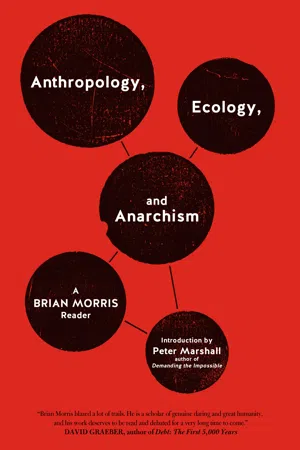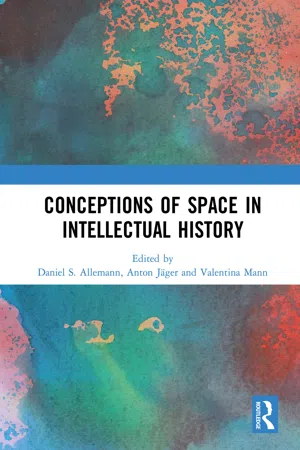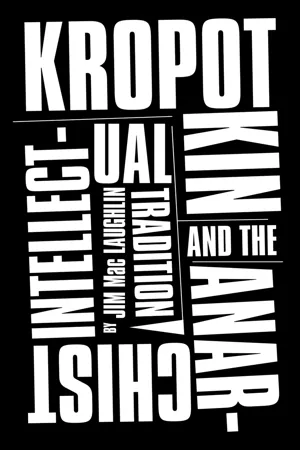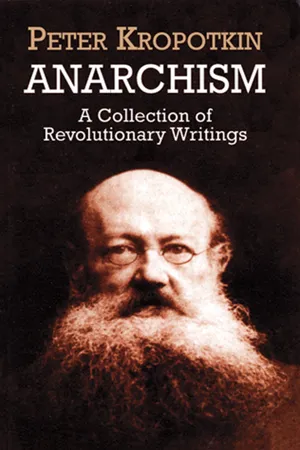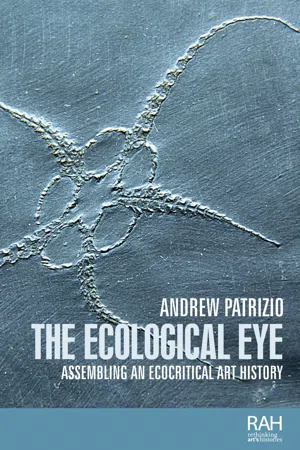Politics & International Relations
Peter Kropotkin
Peter Kropotkin was a Russian anarchist, geographer, and political theorist known for his influential writings on mutual aid, anarchism, and the concept of voluntary cooperation. He advocated for a decentralized society based on voluntary associations and mutual support, and his ideas have had a lasting impact on anarchist and socialist thought.
Written by Perlego with AI-assistance
Related key terms
Related key terms
1 of 4
Related key terms
1 of 3
7 Key excerpts on "Peter Kropotkin"
- eBook - ePub
Anthropology, Ecology, and Anarchism
A Brian Morris Reader
- Brian Morris(Author)
- 2015(Publication Date)
- PM Press(Publisher)
14The Revolutionary Socialism of Peter Kropotkin (2010)
1. Introduction
In the opening pages of my book on Michael Bakunin (1993) I offered a quote from the Ghanaian writer Ayi Kwei Armah. It reads: “The present is where we get lost—if we forget our past and have no vision of the future.”Drawing on the past does not entail that we engage in a kind of ancestor worship, any more than envisioning a better future for humankind entails that we become lost in utopian dreams. Nobody chides biologists for having an interest in the work and theories of Charles Darwin, nor should socialists feel embarrassed in examining and drawing on the work of an earlier generation of socialist theorists—not as historical curiosities, but as a source of inspiration and ideas. In this article I want to critically explore the writings of Peter Kropotkin (1842–1921), focusing on his politics and his critique of the Marxist theory of the state as an agency of revolutionary transformation. The writing of the essay has been provoked by the numerous self-styled anarchists—though they are invariably Stirnerite individualists, anarcho-primitivists, or anarcho-capitalists—who join forces with Marxists and liberals in declaring that the ideas of Bakunin and Kropotkin are “obsolete” or have no relevance to present-day political struggles. In fact, anarchism, revolutionary socialism, is the only tenable political alternative to neoliberalism.2. Kropotkin and Anarchism
As a political philosophy, anarchism has had perhaps the worst press. It has been ignored, maligned, ridiculed, abused, misunderstood, and misrepresented by writers from all sides of the political spectrum: liberals, Marxists, democrats, and conservatives. Theodore Roosevelt, the American president, famously described anarchism as a “crime against the whole human race” (Tuchman 1966, 71), and in common parlance anarchy is invariably linked with disorder, violence, and nihilism. A clear understanding of anarchism is further inhibited by the fact that the term “anarchist” is applied to a wide variety of different philosophies and individuals, as can be seen from Peter Marshall’s (1992) well-known history of anarchism. Thus Gandhi, Spencer, Tolstoy, Berdyaev, Stirner, Ayn Rand, Nietzsche, along with more familiar figures such as Proudhon, Bakunin, and Kropotkin, have all been described as anarchists. This has enabled liberal and Marxist scholars to dismiss “anarchism” as a completely incoherent philosophy. It isn’t. For what has to be recognised is that anarchism is fundamentally a historical movement and political tradition that emerged only around 1870, mainly among the working class members of the International Working Men’s Association, widely known as the First International. Although they did not initially describe themselves as anarchists but rather as “federalists” or as “anti-authoritarian socialists,” this group of workers adopted the label of their Marxist opponents and came to describe themselves as “Anarchist Communists.” Anarchism as a political movement and tradition thus emerged among the workers of Spain, France, Italy, and Switzerland in the aftermath of the Paris Commune, and among its more well-known proponents were Elisée Reclus, François Dumartheray, Errico Malatesta, Carlo Cafiero, Jean Grave, and Peter Kropotkin.1 - eBook - ePub
- Daniel S. Allemann, Anton Jäger, Valentina Mann, Daniel S. Allemann, Anton Jäger, Valentina Mann(Authors)
- 2020(Publication Date)
- Routledge(Publisher)
Kropotkin’s commune and the politics of historyAntónio Ferraz de OliveiraABSTRACT
Peter Kropotkin’s (1842–1921) thought has often been read through the problematic tension between science and politics in his work. This paper offers a new approach to the author by assessing the influence of historians on his work. Focusing on Kropotkin’s efforts to re-imagine the ‘commune’ as an alternative to territorial states, the paper analyses his subversive usages of the Romantic historiography of Augustin Thierry and the Victorian stadial history of Henry Sumner Maine. In concluding, the article reiterates the role of historical resources in Kropotkin’s imaginations of a libertarian socialist commune and calls for further engagement with his thought on the politics of history.Among the subjects that animated the youth of Peter Kropotkin, history was undoubtedly key.1 Feverishly interested, at 15 years old Kropotkin sought special entry to the Russian imperial library to read not only historians’ works but also primary materials.2 His period of predilection, he wrote, was the European early Middle Ages. Forty years later, in his Memoirs, Kropotkin recalled this period fondly, and how, in reading ancient sources, ‘a new social organism and a world of complex relations revealed itself to me’, freed from the ‘prejudice of modern politics’.3 As may be surmised from these ‘memories’, Kropotkin’s interest in history was not only persistent throughout his life but also an active element of his political thought. In spite of this, the historical element of Kropotkin’s writings has remained under-examined in Kropotkin scholarship, displaced by a focus on the tensions between science and politics in his work.4 Within such readings, as argued by Matthew Adams, a concern with Kropotkin’s evolutionist and positivist narratives has led to a marginalization of his historical sensibilities.5 This article addresses this interpretative problem by exploring Kropotkin’s political historiographies in his defence of ‘communes’ as alternatives to territorial states. Focusing on Paroles d’un Révolté and Mutual Aid - Jim Mac Laughlin(Author)
- 2016(Publication Date)
- Pluto Press(Publisher)
Having claimed mutual aid and sociability as the legitimate basis for the moral growth and development of individuals as well as societies, Kropotkin then went on to argue that competition between members of the same species, whether human or animal, was not in their best interests. Competition, he declared, did not create the conditions whereby meaningful progress could occur. To counteract accusations from those who still considered anarchists utopians, he set out to demonstrate that the anarcho-communist society of the future would ultimately be the product of ‘tendencies that are apparent now in society and may indicate its future evolution’. 11 Finally, in response to those who accused him of placing too much faith in evolutionary theory and too little in revolutionary action, he called on his fellow anarchists to actively ‘promote their ideas directly amongst the labour organizations to induce those unions to a direct struggle against capital, without placing their faith in parliamentary legislation’. 12 This was particularly important in the latter half of the nineteenth century when hegemonic ideas about social change and political progress stressed the contribution of self-assertion, competition and struggle to the ethos of capitalism, and to the growth and assertion of imperial, and neo-imperial, authority in the global arena. In emphasizing the historical ‘depth’ of associationism and anti-authoritarian mutualism, Kropotkin sought to transform anarchism into a legitimate political project. He offered his version of scientific anarchism as an alternative to the political violence and social chaos with which, rightly or wrongly, their enemies associated anarchists throughout much of its history. Contrary to the conventional caricatures of anarchists, Kropotkin insisted that they were not opposed to all manifestations of authority- eBook - ePub
Kropotkin, Read, and the Intellectual History of British Anarchism
Between Reason and Romanticism
- M. Adams(Author)
- 2015(Publication Date)
- Palgrave Macmillan(Publisher)
3 Statism: The Power of HistoryIn 1897, Kropotkin travelled to Toronto to participate in the annual meeting of the British Association for the Advancement of Science at the invitation of his friend, the Scottish-Canadian economist James Mavor. After delivering two geographical papers, he then embarked on a tour of the east coast, lecturing on the theory of mutual aid, and the history of Russian literature. It was a productive trip. He was invited back to deliver a series of lectures at the Lowell Institute in Boston, thereby laying the foundations for his book Russian Literature: Ideals and Realities (1905), but also meeting the editor of The Atlantic Monthly, Walter Hines, who commissioned Memoirs of a Revolutionist.1While British reporters reacted to Kropotkin’s presence with equanimity, American newspapers had more difficulty adapting to his prominence as a revolutionary agitator. The Boston Daily Advertiser noted, perhaps with disappointment, that his trip had been uneventful. ‘He has not once been arrested’, it reported, ‘and has not even been followed by government agents’. Aside from betraying the Advertisers’ lack of faith in the clandestine abilities of American law enforcement, the journalist made a critical mistake in explaining Kropotkin’s views. Providing an unexceptional summary of one of his speeches in New York the day before, it appeared under the title, ‘Kropotkine Says State Socialism Is Thriving in the U.S.’2As any assessment of anarchism will emphasise, hostility to the state is a defining characteristic of anarchist political thought. Indeed, given the breadth of ideas placed under this rubric, it is common to present antipathy to state power as the sole unitary feature of the various strands comprising anarchism.3 Useful as the identification of this core belief can be, it can also have the unintended effect of reducing the depth of this critique of the state. During his stay in the United States, Kropotkin also met the individualist anarchist Benjamin Tucker: a meeting of two men self-identifying as anarchists, but denying the anarchism of the other. That Tucker defined the goal of liberty as a consistent ‘Manchesterism’ hints that his formulation was at odds with Kropotkin’s communism.4 Despite Tucker offering a searching criticism of the state, for Kropotkin his defence of individual rights ended with him being ‘driven into the liberal individualism of the classical economists’, with the insidious ‘return of the state idea’ following in its train.5 Tucker, defining anarchism as ‘absolute liberty, nothing more’ similarly argued that Kropotkin’s vision of communistic ownership undermined this goal. Coercion remained, since while he proclaimed the importance of freedom, he denied this in ‘production and exchange, the most important of all liberties’.6 - eBook - ePub
Anarchism
A Collection of Revolutionary Writings
- Peter Kropotkin(Author)
- 2012(Publication Date)
- Dover Publications(Publisher)
He found a congenial group of friends in James Guillaume, an intellectual, a highly educated man who was the author of serious works, in Elisée Réclus, the distinguished French geographer, then in exile, and in Enrico Malatesta, Italian anarchist and follower of Bakunin. Most of the Russians in Switzerland he found had become Marxists, and so his friends were among the Latins. He met at this time a young Russian student, Sophie Ananieff, living also in virtual exile in Switzerland. Shortly after they were married there.As Kropotkin studied the forces about him he came to see that anarchism needed a deeper interpretation than its significance to politics and economics. His philosophical and scientific outlook moved him to probe for a synthesis, a unity which should establish it as a principle of life. This conception colored practically all his thinking, all his work in social ethics, and led him to ceaseless activity in research and interpretation to the day of his death. Even his writing in the natural sciences, notably his Mutual Aid, a classic reply to the school of the “survival of the fittest,” was impelled by this desire to prove on a scientific basis the case for voluntary cooperation and freedom. Of this period of growth he says:“I gradually came to realize that anarchism represents more than a new mode of action and a mere conception of a free society; that it is part of a philosophy, natural and social, which must be developed in a quite different way from the metaphysical or dialectic methods which have been employed in sciences dealing with man. I saw that it must be treated by the same methods as the natural sciences; not, however, on the slippery ground of mere analogies such as Herbert Spencer accepts, but on the solid basis of induction applied to human institutions. And I did my best to accomplish what I could in that direction.”With the exception of a trip back to England and to Paris, Kroptkin lived in Switzerland for five years, until he was thirty-nine,—doing what he describes as his best work, with the help of his wife and Elisée Réclus. It was chiefly in the form of articles and editorials for a fortnightly paper, Le Révolté, which he started at Geneva in 1879, and which he continued for many years, despite persecution and suppression, under the later names of La Révolte and Les Temps Nouveaux. Most of the material in the pamphlets reprinted in this volume was first published in his paper. The pamphlets achieved large editions in a dozen languages. Elisée Réclus collected the best of his early writing in the paper into a book, Paroles d’un Revolté, - eBook - ePub
The ecological eye
Assembling an ecocritical art history
- Andrew Patrizio(Author)
- 2018(Publication Date)
- Manchester University Press(Publisher)
3Clearly, anarchism had an acknowledged impact on cultural expression in revolutionary Europe of the nineteenth century – the context in which Kropotkin was writing. It has been noted by others that for him ‘ethics can be grounded in the natural world’,4 a formulation that still has resonances in contemporary ethics and politics. But returning to his ideas with less nihilistic and more methodological interest, can we ask what kind of ecocritical art history could be written using and adapting his concepts of mutualism and nonhierarchy? Kropotkin’s boldest contribution in his writing was to link thousands of years of human sensibility and sociability with deep evolutionary, ‘pre-human’ preferences founded on the importance of mutualism. His worldview was not generated in the study alone, but drew on observations from a range of civilisations that he had directly witnessed: from Scotland and Turkey to Caucasia, Afghanistan, Persia, India, Java, China, Central and Northern Asia.Kropotkin, as one of the earliest formulators of anarchist thought, identified what he called ‘mutual aid’ and ‘mutual support’ as far more important in evolutionary terms than ‘struggle’ and ‘competition’. He argued that these sentiments go far deeper than more commonly discussed emotions, amounting to ‘a feeling infinitely wider than love or personal sympathy – an instinct that has been slowly developed among animals and men in the course of an extremely long evolution, and which has taught animals and men alike the force they can borrow from the practice of mutual aid and support, and the joys they can find in social life’.5 The objects of his study covered all biotic life, from the development of the earliest and simplest biological forms, to pond life, then animals, on to recent social organisation within human communities. His was the work of a polymath operating at a meta-level of theory but informed by empirical episodes from the living world. Understanding the radically horizontal, ‘entangled’ community of living organisms that Darwin delineated (far from its Social Darwinist distortions), led Kropotkin to support ‘weakness’ within species: ‘As if thousands of weak-bodied and infirm poets, scientists, inventors, and reformers, together with other thousands of so-called “fools” and “weak-minded enthusiasts”, were not the most precious weapons used by humanity in its struggle for existence by intellectual and moral arms, which Darwin himself emphasized in those same chapters of Descent of Man.’6 - eBook - ePub
- Rob Knowles(Author)
- 2013(Publication Date)
- Routledge(Publisher)
Chapter Eight Elisée Reclus and Peter Kropotkin: Evolution and Revolution Every general evolution brings in its wake corresponding revolutions. It must be so, and we cannot alter the course of history … Elisée Reclus, Anarchy, 1896. 1 The ideal of the anarchist is … a mere summing-up of what he considers to be the next phase of evolution. It is no longer a matter of faith; it is a matter for scientific discussion. Peter Kropotkin, Anarchist Communism, 1887. 2 Elisée Reclus (1830–1905) and Peter Kropotkin (1842–1921) reside comfortably together in this chapter just as they lived fraternally and collaborated closely in their lives. The basic common intellectual thread, apart from a shared commitment to anarchism as politics and as socio-economic thought, was their commitment to science and in particular to evolutionary science as fundamentally informing human individual and social development. From the late 1870s for about a decade their lives were so tightly woven together that it is difficult to give an account of one without reference to the other. After Kropotkin was forced to live in exile, and chose England, from 1886, their personal contact was less frequent, although the mutual respect and friendship they had for each other did not diminish. Reclus spent most of his later life in Switzerland and Brussels. Equally, their socio-economic ideas also did not materially diminish in similarity after that time. There were some differences between them in terms of revolutionary politics but those differences are not the focus of this study and in any event they were not substantial in terms of their overall visions of society. 3 This account of their economic ideas will begin with Reclus, as he had direct personal links with both Herzen and Bakunin, whose ideas have been discussed in the previous chapter. Kropotkin, whilst well aware of the published writings and revolutionary influences of both Herzen and Bakunin, never met either man
Index pages curate the most relevant extracts from our library of academic textbooks. They’ve been created using an in-house natural language model (NLM), each adding context and meaning to key research topics.
Explore more topic indexes
Explore more topic indexes
1 of 6
Explore more topic indexes
1 of 4
